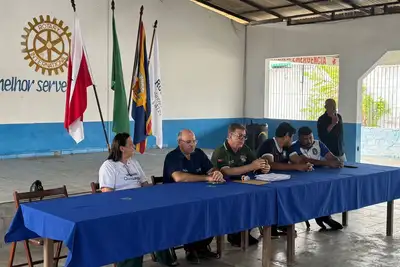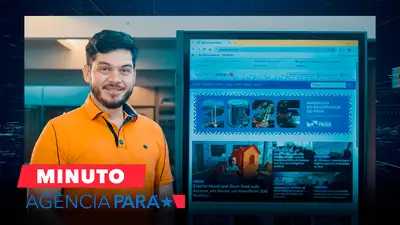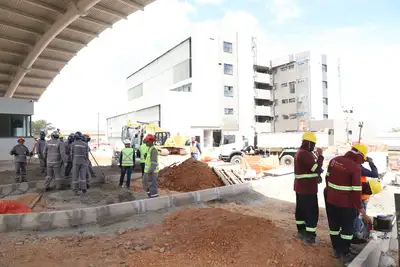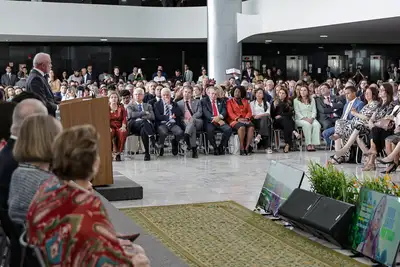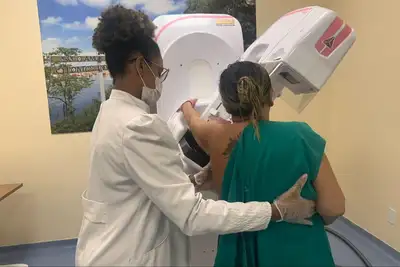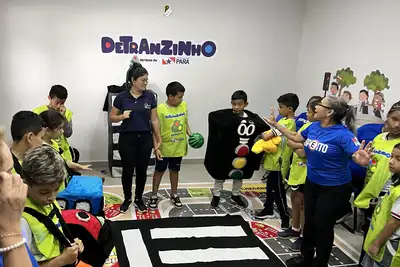Government invests in digital platforms and facilitates access to cultural and tourist spaces in Pará
The platforms Visit Pará and eCult+ modernize the management and strengthen the visibility of public facilities in the State
With the aim of facilitating access to cultural and tourist spaces in Pará, modernizing the management of public facilities, and strengthening the creative economy in the State, the Government launched new digital platforms in October. "Visit Pará" gathers tourist information and travel itineraries throughout the State, while "eCult+" is focused on the management and promotion of cultural spaces in Pará.
Since the official designation of Belém as the host city for the 30th United Nations Conference on Climate Change (COP30), which will take place this month, Pará has experienced a "boom" in searches, inquiries, and interest from visitors, as one of Brazil's most promising tourist destinations.
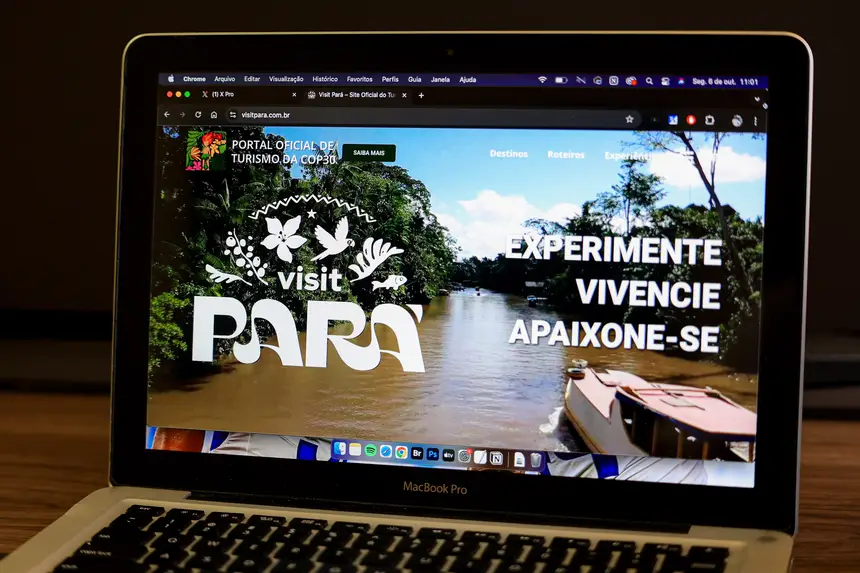
According to data from the Pará Tourism Observatory, released by the State Tourism Secretariat (Setur), the State received 1,204,944 tourists in 2024, generating a revenue of R$ 871.9 million from the sector. The forecast is for growth of over 20% in 2025, reaching around 1.5 million visitors.
“We are preparing Belém, and Pará, for a new cycle of Amazonian tourism. COP30 is a great international showcase, but the legacy it leaves goes far beyond the event. The ‘Visit Pará’ is part of building a permanent structure of information, content, and connectivity that benefits both tourists and public authorities, with data and tools that help plan and promote the destination more efficiently. It provides rich information for the trade to enhance its activities and expand operations, as well as ensuring quality in the experience,” emphasizes Eduardo Costa, head of Setur.
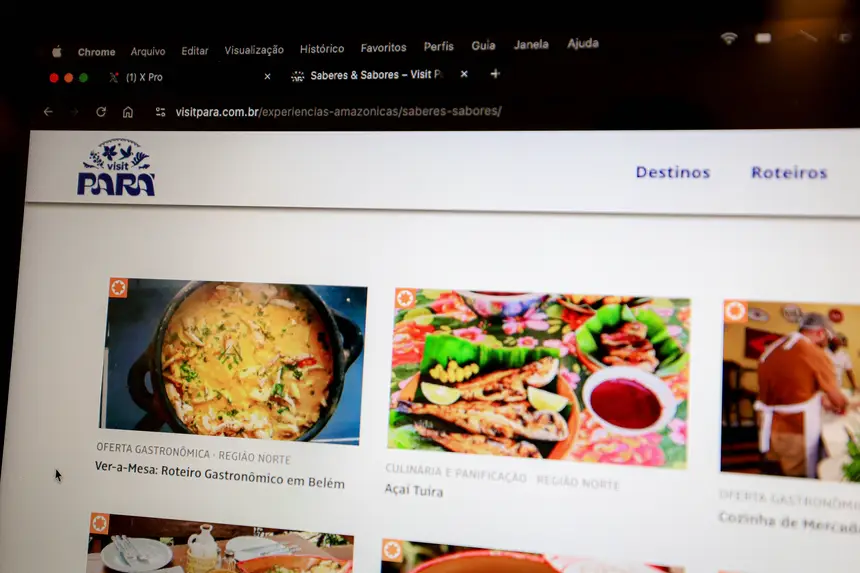
Information - The idea behind "Visit Pará" is to centralize, in a single digital environment, information about attractions, services, events, and routes, which contributes to strengthening governance, improving the promotion of destinations, and increasing national and international competitiveness, guiding public policies. In an integrated virtual environment, the platform features a website and application aimed at tourists, public agencies, and local entrepreneurs, and is already available (www.visitpara.com.br ).
The tool https://www.ecultespacos.com.br/, which already includes more than 100 registered public facilities, allows for consultation, reservation, and viewing of cultural programming in a digital, secure, and transparent manner.
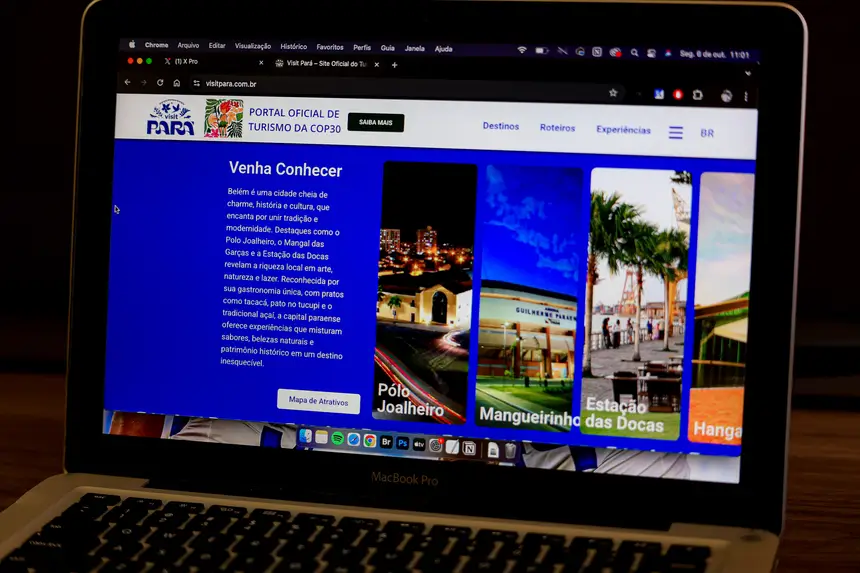
Three languages - Developed by the Foundation for Support and Development of Research (Fadesp), in collaboration with the State Secretariat of Culture (Secult) and with support from the Cultural Foundation of Pará (FCP), the City Hall of Belém (through Semcult), Open Society, and the Institute for Culture, Communication, and Advocacy (ICCI), the platform has a trilingual interface (Portuguese, English, and Spanish).
“In addition to making life easier for those who promote events, we must highlight the importance of the tool for professionals working in the cultural chain, such as producers, translators, lighting technicians, and stage technicians. Since all of them will have a place to register and offer their skills, expanding job opportunities and income generation. This is certainly an important step towards valuing and professionalizing those who, through culture, produce their livelihood,” explains Thiago Miranda, president of FCP.
Cultural technician Fernanda Rabelo emphasizes that the creation of the platform represents a significant advancement for the cultural sector in Pará. “The platform establishes a bridge between cultural professionals and the public, facilitating the dissemination, access, and appreciation of artistic productions. For those working in culture, it offers an organized and accessible showcase, expanding opportunities for visibility, partnerships, and sustainability of projects. For the public, it becomes a tool for engagement, allowing them to learn about and present new backstage areas, and to follow and participate more actively in cultural programming. The platform arrives to transform and strengthen our cultural sector,” she concludes.


